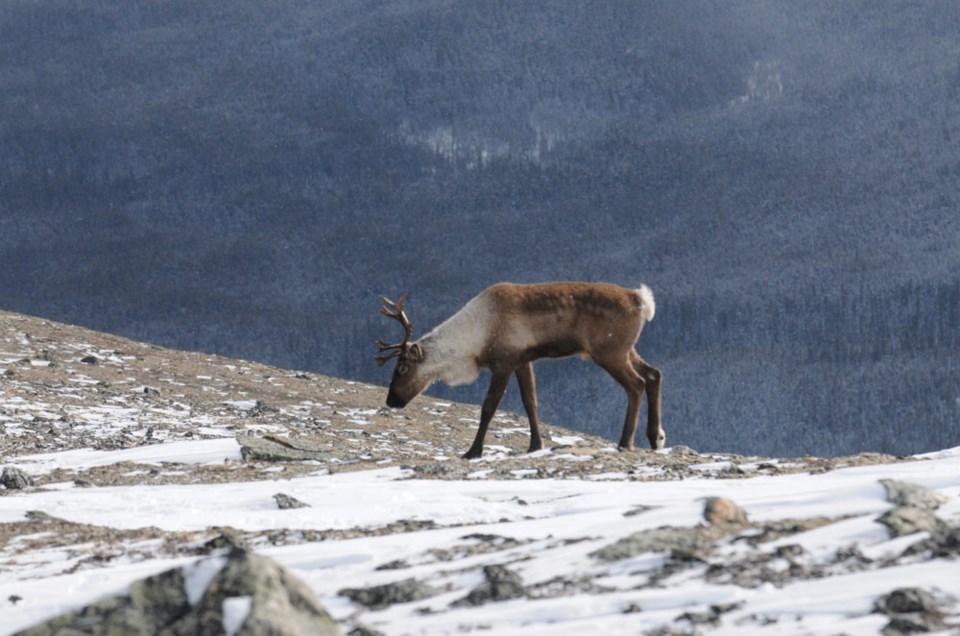
Peter Shokeir | [email protected]
An independent expert panel is supporting the use of captive breeding to rebuild woodland caribou populations in Jasper National Park.
Although no final decisions have been made, Parks Canada hopes to start releasing animals to the wild in about five years.
“We’re at a point now where we’ve just received positive feedback from the expert panel that we put together to assess this from a scientific perspective,” said Dave Argument, conservation manager for Jasper National Park.
Over the last few decades, caribou numbers have grown smaller with the Maligne herd disappearing and only a handful remaining in the Tonquin and Brazeau herds.
The Tonquin herd south of town currently has 45 animals.
“We’re confident that we have mitigated most of the causes for that decline, but at this point, the herds are so small that they just will not rebuild naturally,” Argument said.
“This (breeding program) is kind of the last tool in the toolbox to try to make sure caribou persist in Jasper.”
The enclosed breeding facility would occupy tens of hectares and feature pens to keep separate groups apart as required for breeding purposes.
It would host about 40 females and five males.
The location of the facility has yet to be determined, but it would be away from the townsite and not accessible to the public.
“We’re already at a disadvantage in terms of trying to release naïve, captive-raised animals to the wild,” Argument said.
“It is certainly not a zoo. It’s a captive breeding population to try to produce animals for the wild.”
The panel of nearly 50 conservation specialists supported the proposal but warned several issues would need to first be considered, such as ensuring that post-release mortality is not above desired levels and managing the effects of climate change.
Before the breeding program can begin, Parks Canada also needs to undertake an impact assessment and Indigenous consultation.
The captive breeding proposal has received mixed feedback from multiple non-governmental conservation groups.
While acknowledging the work of the panel, the groups advocated in a joint news release for limiting human access to south Jasper caribou ranges while the proposal is further reviewed.
Carolyn Campbell, conservation specialist with the Alberta Wilderness Association, said Parks Canada should focus more on stronger access measures in order to protect caribou, particularly in the Tonquin Valley.
“It’s really important to have caribou persist in that range, whether or not conservation breeding proceeds,” Campbell said.
“We still feel there’s too risky an approach to winter access… and that summer and fall access should definitely be reviewed and impacts reduced.”
In the winter, the deep snow of high-elevation habitat can protect caribou from predation.
But when backcountry users venture into this territory, they can leave packed-down trails that can be used by wolves to access areas that are naturally less accessible to them in winter.
Campbell added that the energy costs to caribou for avoiding humans still wasn’t recognized enough by Parks Canada or examined in depth by the expert panel.
“I don’t think that’s been carefully enough and publicly enough assessed what the evidence is for that,” she said.
Argument said Parks Canada was now reviewing conservation measures and if they were adequate, noting there are already some access restrictions to occupied caribou ranges.



